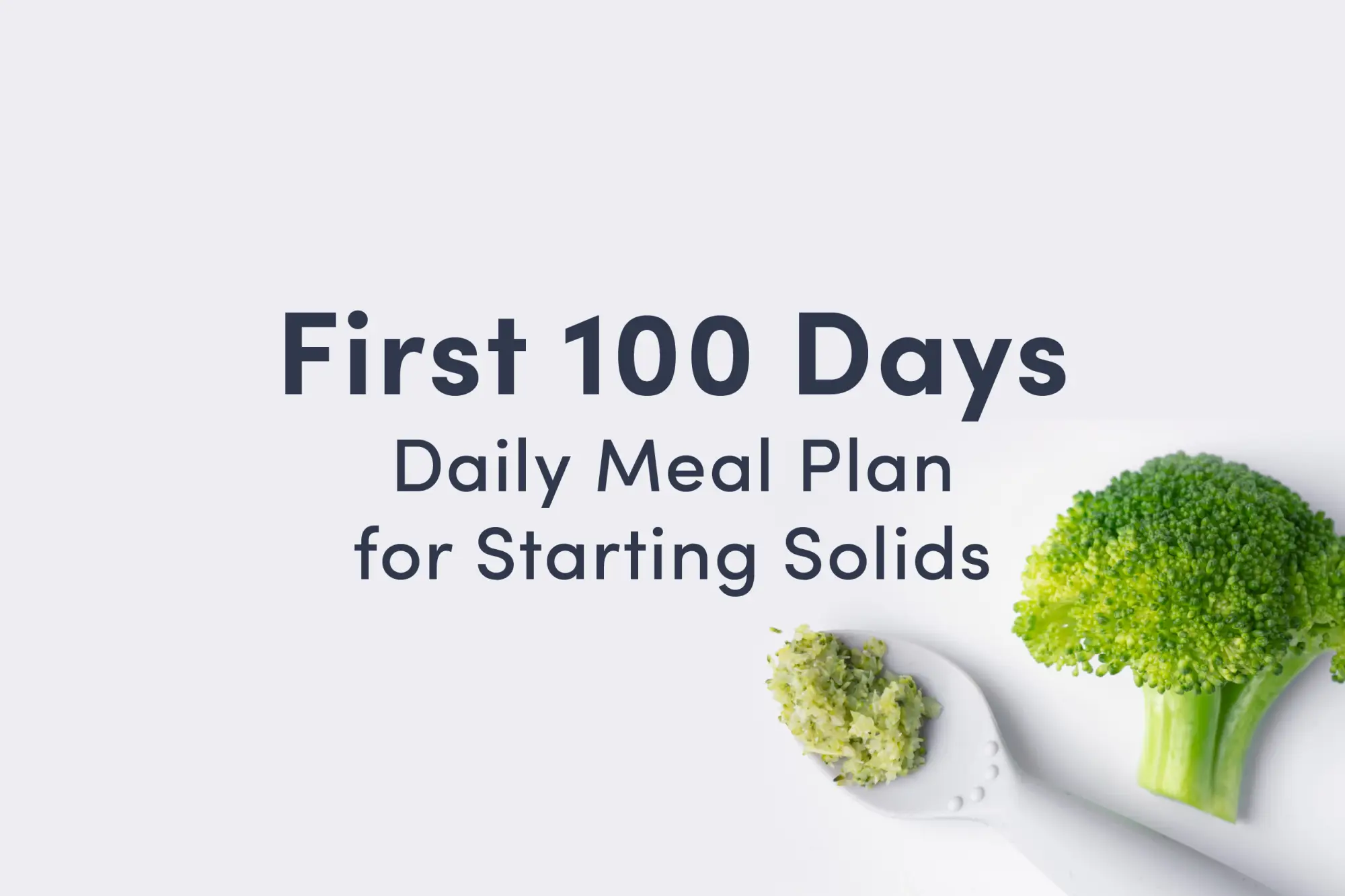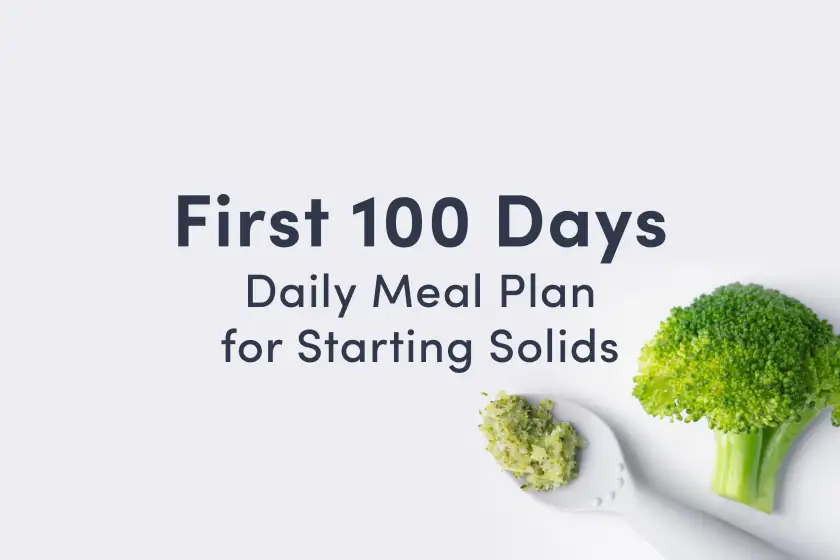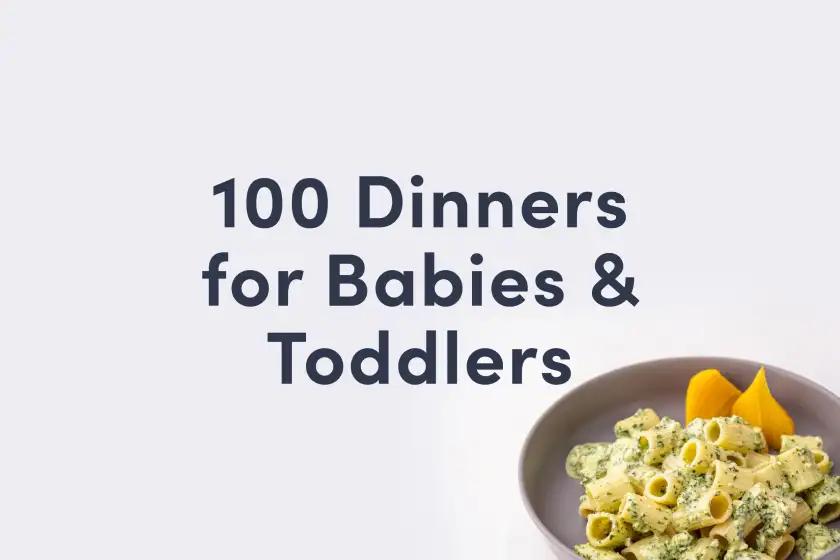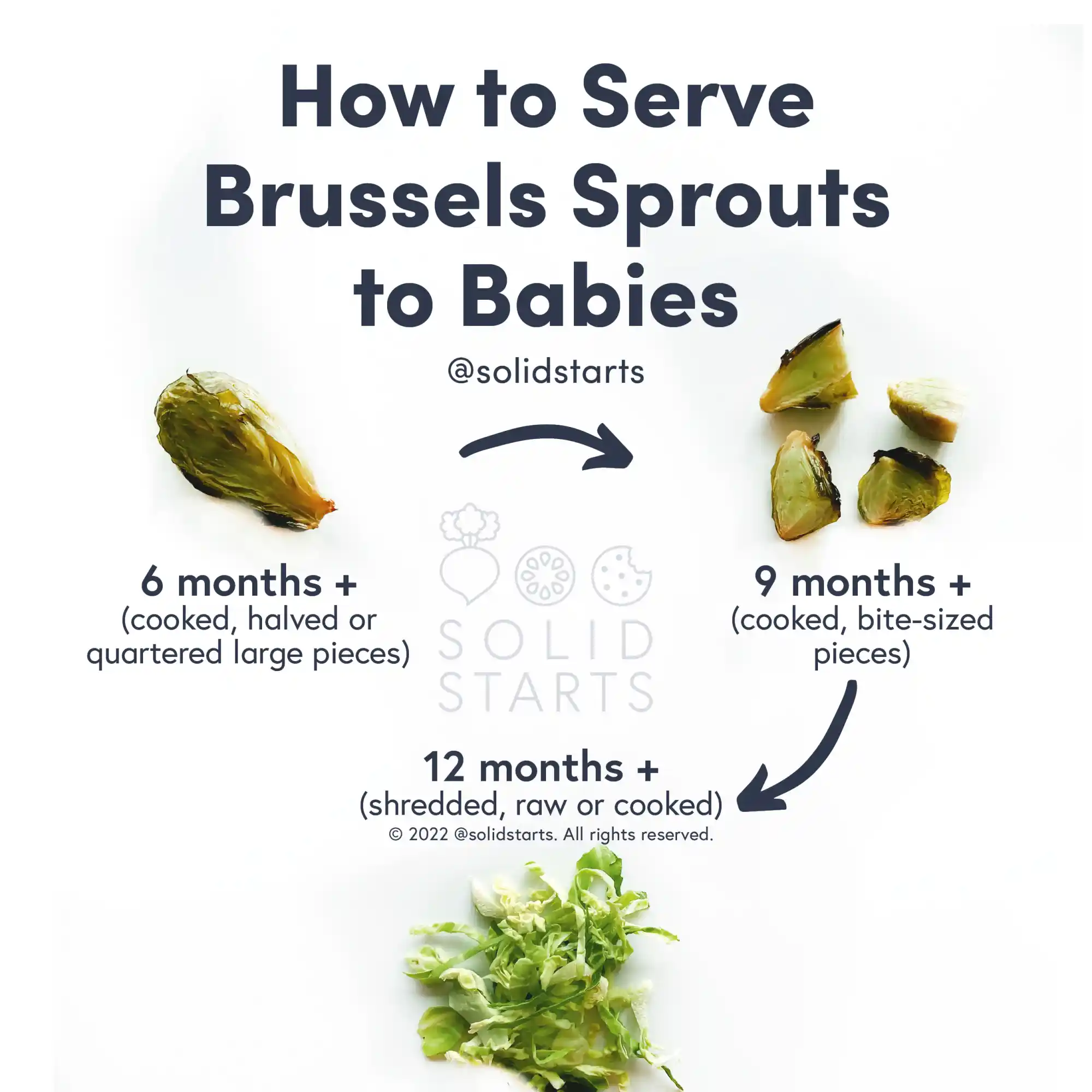Brussels Sprouts
Vegetable
Age Suggestion
6 months
Iron-Rich
No
Common Allergen
No
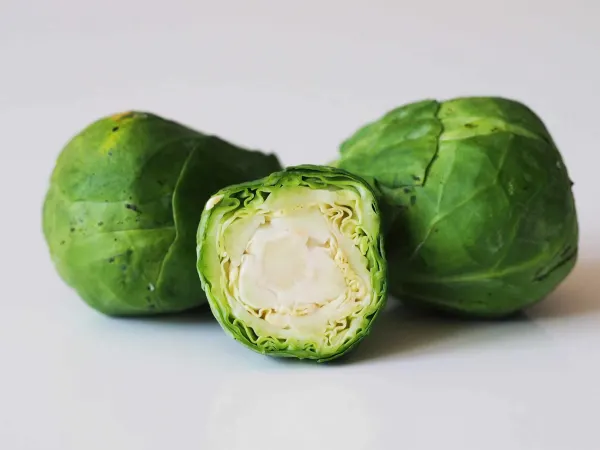
When can babies eat brussels sprouts?
Brussels sprouts, when cooked until soft, may be introduced as soon as baby is ready to start solids, which is generally around 6 months of age.
Where do brussels sprouts come from?
Brussels sprouts are brassicas—a diverse plant family derived from wild cabbages in the Mediterranean region. So, what’s the deal with its name in English? Ancient migration and trade led to cabbage varieties that thrived in cooler climates, like the farmlands near Brussels, where “spruitjes” have been widely grown since the 13th century. With trade across the North Sea, the tiny sprouts took on the name of the Belgian capital where they grew. Brussels sprouts can taste bitter, although recent agricultural innovation has led to new varieties that minimize those harsher flavors. These offer a nuttier, sweeter taste that appeals to many taste buds—perhaps why this once-maligned vegetable has become a go-to ingredient for many.
Videos
Are brussels sprouts healthy for babies?
Yes. Brussels sprouts are loaded with fiber, folate, B vitamins, potassium, and vitamin K. Brussels sprouts also provide some vitamin E, choline, iron, and zinc. That’s not all—they provide pretty much every other nutrient babies need to thrive, including calcium, vitamin A, and carotenoids (beta-carotene, lutein, and zeaxanthin), vitamin C, and magnesium. Plus, these “mini cabbages” are packed with phytonutrients that help protect human cells, support the immune system, and fight against cancer. Lastly, they also contain a dash of alpha-linolenic acid (ALA) omega-3 fatty acids, which aid in healthy brain development.
★Tip: Minimize exposure to pesticides by washing brussels sprouts thoroughly before cooking. Pesticide use on cruciferous vegetables is common, and brussels sprouts are no exception.
Are brussels sprouts a common choking hazard for babies?
Yes, very small sprouts are a choking risk because of their round shape and firm texture. To minimize the risk, cook brussels sprouts until soft and cut into quarters, so they are no longer round. Note that individual leaves can stick to baby’s tongue or the roof of their mouth and cause some harmless gagging. As always, make sure you create a safe eating environment and stay within an arm’s reach of baby during meals. For more information on choking, visit our sections on gagging and choking and familiarize yourself with the list of common choking hazards.
Are brussels sprouts a common allergen?
No. Allergies to brussels sprouts are rare, but possible. Individuals who are allergic or sensitive to other members of the cruciferous family, such as mustard greens and cauliflower, may also be sensitive to brussels sprouts. People who are allergic to mugwort may be allergic to brussels sprouts or experience Oral Allergy Syndrome (also known as pollen-food allergy). Oral Allergy Syndrome typically results in short-lived itching, tingling, or burning in the mouth and is unlikely to result in a dangerous reaction.
As you would when introducing any new food, start by offering a small quantity for the first few servings. If there is no adverse reaction, gradually increase the quantity over future meals.
What are recipe ideas for cooking with brussels sprouts?
Use brussels sprouts in salads, slaws, and stir-fries. When shredded (cooked or raw) brussels sprouts work well in egg dishes, fried rice, noodles and pasta, soups, stews, tacos, and almost any recipe that calls for shredded cabbage. If you find brussels sprouts taste too bitter, use hearty fats like butter, olive oil, or peanut oil when preparing them. You can also balance the bitterness by serving brussels sprouts with foods rich in fat, like avocado, cheese, or nuts. How you cook brussels sprouts also makes a difference. Blasting them with high heat (frying, grilling, roasting, sautéing) mellows the bitterness by enhancing the sprouts’ nutty, sweet flavors. Alternatively, cooking brussels sprouts in water (boiling, steaming) leaches bitterness from the greens, resulting in a mellower flavor.
How do you prepare brussels sprouts for babies with baby-led weaning?
Every baby develops on their own timeline, and the suggestions on how to cut or prepare particular foods are generalizations for a broad audience.
6 to 9 months old:
Bigger is better! Start with larger brussels sprouts (much bigger than baby’s mouth, at least 2 inches in diameter), then halve or quarter them and cook until soft. You can also mix shredded and steamed brussels sprouts into a soft, scoopable food like mashed potato.
9 to 12 months old:
Try offering bite-sized or quartered pieces of brussels sprouts that have been cooked to a soft consistency for baby to practice picking up with their developing pincer grasp (where the thumb and forefinger meet). If you’d like to continue offering cooked brussels sprout halves, go for it. Just be intentional about teaching baby to take bites and model chewing.
12 to 24 months old:
Explore a wide range of recipes that use brussels sprouts—including dishes with shredded, raw brussels sprouts. When you feel comfortable with the child’s biting and chewing skills, try decreasing the cooking time to offer bite-sized and quarter pieces of brussels sprouts that are a bit firmer in texture. This is also a great age to encourage self-feeding with utensils. If the child needs help, simply pre-load an age-appropriate fork with bite-sized pieces of cooked brussels sprouts, and lay it next to the food for the child to pick up. Alternatively, pass the utensil in the air for the child to grab from you.
How to prepare brussels sprouts for babies 6 months+.
Get baby’s caregivers on the same page as you with our guide, Baby-led Weaning with Daycare & Caregivers.
Written by
Expert Tips Delivered to Your Inbox
Sign up for weekly tips, recipes and more!
The content offered on SolidStarts.com is for informational purposes only. Solidstarts is not engaged in rendering professional advice, whether medical or otherwise, to individual users or their children or families. No content on this site, regardless of date, should ever be used as a substitute for direct medical advice from your doctor or your medical or health professional, nutritionist, or expert in pediatric feeding and eating. By accessing the content on SolidStarts.com, you acknowledge and agree that you are accepting the responsibility for your child’s health and well-being. In return for providing you with an array of content “baby-led weaning” information, you waive any claims that you or your child may have as a result of utilizing the content on SolidStarts.com.


